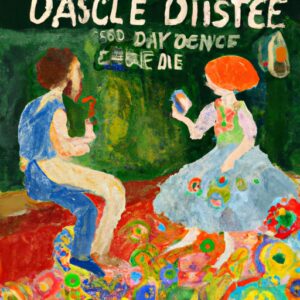What does hai voglia di mean in Italian?
In Italian, there are different ways to ask someone if they feel like doing something.
If you want to ask a friend if they want to join you, you could ask: vuoi venire? If you want to sound less formal you could say, hai voglia di venire? or ti va di venire?
All three options are fine. They basically mean the same, but the last one is more informal than the other two.
Have a look at the literal translations of the three questions we mentioned above. The last one sounds very odd in English because it doesn’t make any sense.
Vuoi venire?
Do you want to come?
Hai voglia di venire?
Do you have the desire to come? (Do you feel like coming?)
Ti va di venire?
Does it go to you to come? (Do you fancy coming?)
How to use vuoi?
The easiest and shortest option is with the verb volere.
Here’s the structure: volere + verb.
And here are some examples:
Vuoi mangiare da noi stasera?
Do you want to eat at ours tonight?
Voglio andare ad un concerto.
I want to go to a concert.
Giovanni non vuole uscire.
Giovanni doesn’t want to go out.
How to use hai voglia di?
You could also ask someone if they feel the desire to do something, which basically means if they feel like doing something.
Here’s the structure: avere voglia di + verb.
The word voglia is not a verb. However, in terms of meaning, it belongs to the family of the verb volere (to want), so they’re closely related.
Voglia doesn’t really have a direct translation but it means something like desire or wish.
Also, voglia is a noun. This means we don’t have to conjugate it. What we conjugate is the verb avere.
Here’s its conjugation in case you don’t remember:
| io | ho |
| tu | hai |
| lui / lei | ha |
| noi | abbiamo |
| voi | avete |
| loro | hanno |
And here are some examples:
Hai voglia di andare al cinema?
Do you feel like going to the cinema?
Non ho voglia di studiare.
I don’t feel like studying.
Cosa avete voglia di mangiare?
What do you feel like eating?
How to use ti va di?
This is the most informal of the three. And here’s the structure: indirect object pronoun + va + di + verb.
Here are the indirect object pronouns:
| mi | (to) me |
| ti | (to) you |
| gli / le | (to) him/ her |
| ci | (to) us |
| vi | (to) you |
| gli | (to) them |
Since the literal translation of this construction doesn’t make sense, we’re going to use a more appropriate translation.
Let’s have a look at some examples:
Ti va di mangiare fuori?
Do you fancy eating out?
Vi va di prendere un taxi?
Do you fancy taking a taxi?
Non mi va di cucinare.
I don’t fancy cooking.



















